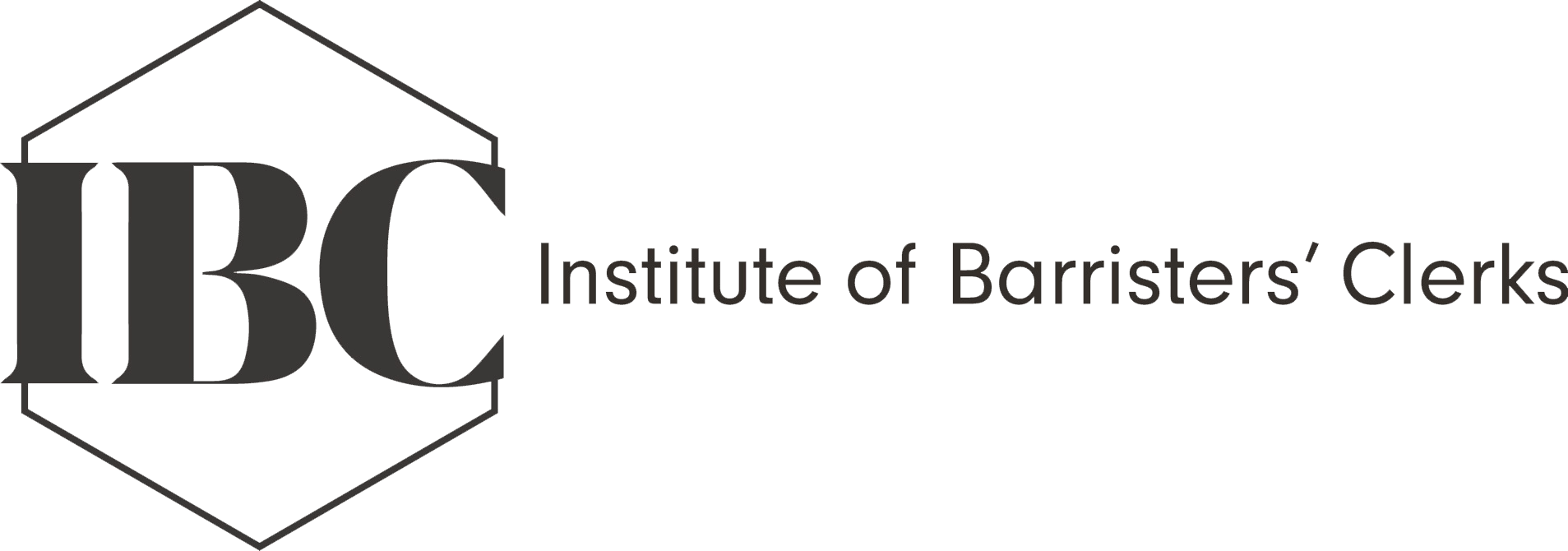Glossary of Terms for The IBC Introduction to Business Management Course
All industries have their own business language and acronyms. When joining a new industry, understanding the “jargon” is sometimes half the battle. We have put together a glossary of terms to help you with this course, and generally in the workplace. These terms and acronyms will become a part of your own language throughout your career as a barristers’ clerk.
| Term | Description |
|---|---|
| Bar Council | The Bar Council represents barristers in England and Wales. It is also known as the General Council of the Bar and is the approved regulator of the Bar. It discharges its regulatory functions through the independent Bar Standards Board. |
| Bar School | The informal name for a provider of the vocational component. |
| Bar Standards Board | The Bar’s independent regulator. |
| Bench | The judge/judges. |
| Bencher | A senior member of an Inn of Court, also known as a Master of the Bench. |
| Brief | The documents setting out case instructions for a barrister to argue a case in court. |
| Call to the Bar | The bestowal of the title of “barrister” by an Inn of Court on those who have completed the necessary training requirements and have satisfied their Inn that they are fit and proper to be called to the Bar. |
| Circuits | The six geographical areas into which the courts of England and Wales are divided: North-Eastern, Northern, Midland, South-Eastern, Western and Wales, and Chester Circuits. |
| Chambers | The collective name for a group of self-employed barristers who share premises, a corporate identity, staff, and overheads. |
| Counsel | This is simply another way of referring to a barrister. |
| CPS | The Crown Prosecution Service, the primary body responsible for the prosecution of criminal offences in England and Wales. |
| Devilling | Completing paid work for other members of chambers. |
| EL | Employers Liability. |
| Head of Chambers (HOC) | A senior barrister in a set of chambers who is elected or appointed as its head |
| HMCTS | His Majesty’s Courts and Tribunal Service. |
| Legislation | Legislation is a law or a set of laws that have been passed by Parliament. |
| Inn of Court | The four historic institutions with the exclusive right to call barristers to the Bar. |
| Indictable offence | An offence where the defendant has the right to trial by jury. |
| Injunction | A court order requiring a person to do or cease doing a specific action. |
| RCJ | Royal Courts of Justice – Strand, London WC2A 2LL. |
| RTA | Road Traffic Accident. |
| Set | Another name for a barristers’ chambers. |
| Statute | An Act of Parliament is a law made by the UK Parliament. |
| PI | Personal Injury. |
| PL | Public Liability. |
| Pupillage | Pupillages are divided into two six-month periods. Most chambers now only offer 12-month pupillages; however, it is still possible to undertake the two sixes at different sets. |
| Independent Bar | Describes self-employed barristers. |
| Judiciary | The system of courts that interprets, defends, and applies the law in the name of the state. |
| Junior | A barrister not yet appointed silk. Note: older juniors are known as senior juniors. |
| Junior brief | A case on which a junior is led by a senior. Such cases are too much work for one barrister alone and may involve a lot of research or run for a long time. Ordinarily, junior counsel will not conduct advocacy. |
| KC | Kings Counsel, also referred to as Silk. |
| Member | A term for a barrister – a member of the Bar or a Member of chambers. |
| Mini-pupillage | Work experience at a set of chambers, normally lasting between one and five days. |
| MOJ | Ministry of Justice. |
| SLA | Service Level Agreement. |
| Supervisor | The name of a barrister who supervises pupils, also known as a pupil master. |
| Tenant/tenancy | A barrister who is given permission from chambers to join their set and work with them. A “squatter” describes someone who is permitted to use chambers’ premises but is not actually a member of the set. |
| Tenant (door) | A “door tenant” describes someone who is affiliated with the set but does not conduct business from chambers’ premises. |
| Third Six | When pupils are not successful in gaining tenancy, they can apply for a third six (months’) vocational training at another set, in the hope of success in securing tenancy. |
